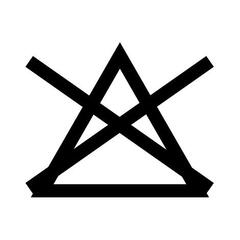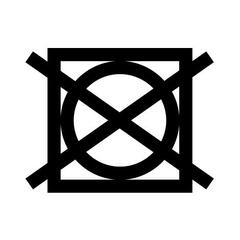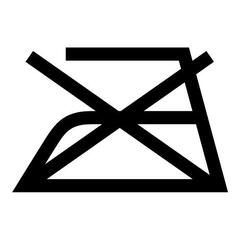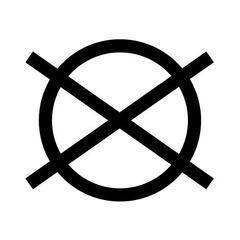KIPSTA, SUPPLIER OF THE OFFICIAL LIGUE 1 MCDONALD'S AND LIGUE 2 BKT BALL, FOR THE 2022-2027 PERIOD
As a result of the consultation launched in March 2021, the Board of Directors of the LFP has designated Kipsta, Decathlon group's football brand, as the new official supplier of the LFP.
Kipsta premium footballs, designed in France, have been awarded the FIFA Quality Pro label and undergo quality tests at various stages of production.
With the official balls of the Ligue 1 McDonald's and Ligue 2 BKT, Kipsta wishes to demonstrate its know-how at the highest level of competition.
Why this ball?
Thermobonding technology is used to make this ball.
This football was designed for the world of professional football. It reflects our expertise and meets the expectations of the most demanding players (players and goalkeepers).
It offers a heightened playing sensation thanks to its textured microfibre component with foam and grooves.
This football has an exclusive Kipsta design
Designed with the pros!
We've worked with players in the Ligue 1 McDonald's and Ligue 2 BKT to design this official match ball.
It's the fruit of several years of research and development, which have led to us fully meeting the needs of the players and goalkeepers playing in Ligue 1 McDonald's and Ligue 2 BKT.
What makes it special?
We've designed a ball with good reliability and stability of trajectory.
Our design choices were made with this in mind.
“What matters most about a football is that you're able to put it where you want it every time. Consistency above all else”.
The durability of our balls
We've developed a tool for characterising the durability of our balls.
Defects that appear in use are identified and assessed through a series of laboratory tests.
These tests enable us to compare the overall strength of our footballs with those available on the market.
Our aim: to have the most durable products on the market.
Designed in France
This ball, just like the whole of our range, is 100% designed in France, and has been rigorously tested by a combination of lab and field tests. So it meets the strictest standards and requirements, as well as complying with a whole range of additional tests, specifically developed by Decathlon.
Apart from normative tests, our Kipsta Certification Unit carries out additional tests, that enable us to design, but also objectively compare our products.
WHAT IS THE KIPSTA CERTIFICATION TEAM?
The Kipsta certification unit is a team made up of qualified field trial engineers, renowned for: establishing specific protocols and tests relating to how the products will be used.
Recruitment of qualified testers with a level suitable to evaluate products' functions.
Objective analysis of results, using statistical tools.
These tests cover general aspects, such as durability, durable inflation, and functions that reflect the ball's technical aspects.
The Kipstadium, in Tourcoing, France
To design our balls, we have a dedicated team, as well as a laboratory based in France. The Ball team in France is made up of product engineers, component engineers and test engineers, which means we are able to master the entire ball design process, from components to technical validation.
Our ball lab
At Decathlon we've been testing our balls for over 15 years in order to validate our products during the design, industrialisation and post-production phases. A laboratory 100% dedicated to ball tests was even created in 2018 at the Kipstadium site in France.
More than a dozen tests are carried out on our balls. First of all, there are the tests required by FIFA, as well as other, additional tests, created by the engineers within our laboratory.
Decathlon, the designer
With 40 years' experience as a designer, Decathlon bases its product development on desirability and accessibility for all, consequently implying a notion of universality in their design (age, gender and nationality).
The group's, and therefore Kipsta's, aesthetic line is a balance between our convictions (simple, technical and clever products) and our sober, universal and modern artistic direction.
Designers as well as engineers
The DNA worked into this ball (i.e. the formal basis on which a graphic design is juxtaposed) combines technical features and balance.
The spatial apprehension and the visual effects linked to the ball during its movements are worked on so as not to cause any visual discomfort to the players, thus supporting the design choice.
Every ball is checked just before being shipped
To ensure optimal quality for our official balls, they will be checked one by one (100% of production) at the end of the production line, in order to guarantee the quality of the latter just before shipment.
The quality control at the end of the production line will involve checking that the technical specifications relating to the ball have been met.
In addition, production samples will be taken regularly for further destructive testing.
An exclusive Kipsta design
We know that, in matches, the little details make all the difference. For this football, we wanted to create an ultra-reliable ball. We focused on the stability and feel of the ball in play. To do this, we tested different shapes of panelling, grooves, textures and components, and chose the ones which showed the best results. This 12-panel design combined with the embossed lines is exclusive to Kipsta.
A beach ball?
We know that a stable trajectory is important, especially for field players kicking long balls and for goalkeepers sending the ball down the pitch. Traditionally designed using 32 panels, we've designed this ball using 12 identical panels. These 12 panels are also thermobonded and have special grooves in them, along with a microfibre fabric. This significantly improves the ball's stability and makes it more enjoyable to play with.
Did you say FIFA Quality Pro?
We conducted numerous lab tests on the ball in order to accurately meet the requirements of professional football. Each test is outlined below.
Too light? Too heavy? The weight is standardised...
This ball weighs between 420 g and 445 g (size 5) and complies with official FIFA standards.
FIFA Quality Pro ball.
How big is it? What's the circumference?
This ball measures between 68.5 cm and 69.5 cm (size 5) and complies with official FIFA standards.
FIFA Quality Pro ball.
A "round" ball?
Here's how we test sphericity:
Average measured variation: 1.5% max (FIFA Quality Pro standard).
We measure the football's sphericity at 4500 different points and then examine any differences.
When the discrepancy is greater than 1.5% (FIFA Quality Pro Standard), our engineers are tasked with improving the sphericity to ensure consistent rebound.
Maximum pressure loss test: here's what we do...
Here's how we test pressure loss: We inflate the ball to the recommended pressure (meaning 0.8 bar).
72 hours later, the ball must not have lost more than 15% of its pressure, meaning approx. 0.1 bar (FIFA Quality Pro certification). The pressure after 72 hours must, therefore, be at approx. 0.7 bar.
This also means that it is quite normal for a ball to lose pressure after a few days.The pressure recommended for the ball is 0.8 bar (1.0 bar max; 0.7 bar min).
We've also tested how much water the ball absorbs...
Here's how we test water absorption:
We simulate rainy playing conditions in a lab, leaving the ball to sit in 2 cm of water on a pivoting support whilst subjecting it to 250 compressions.
At the end of the test, the ball must have absorbed no more than 10% of its weight (FIFA Quality Pro standard). This is one of the advantages of the thermobonded process; water absorption is limited in comparison to other processes (machine-stitched for example)
It's all about the bounce
Here's the bounce test:
The ball is dropped onto a steel plate 10 times from a height of 2 metres.
The bounce height must be between 135 and 155 cm with a maximum difference of 10 cm between the ball's highest and lowest bounce.
Not even a scratch!
The most stringent test we put this ball through is the shooting machine test.
The ball must resist 2,500 shoots against a concrete slope at 50 km/h at a distance of 2.5 m.
At the end of the test, we check:
- the ball's general state: stitching must withstand this test
- the circumference: must not have increased by more than 1.0 cm.
- the sphericity: it must not have varied by over 1.5%
- the pressure: loss of pressure must not exceed 10.0%.
How about you? What do you think?
We value your feedback and use it to continuously improve our products.A huge thank you in advance for sharing your feedback with us.




